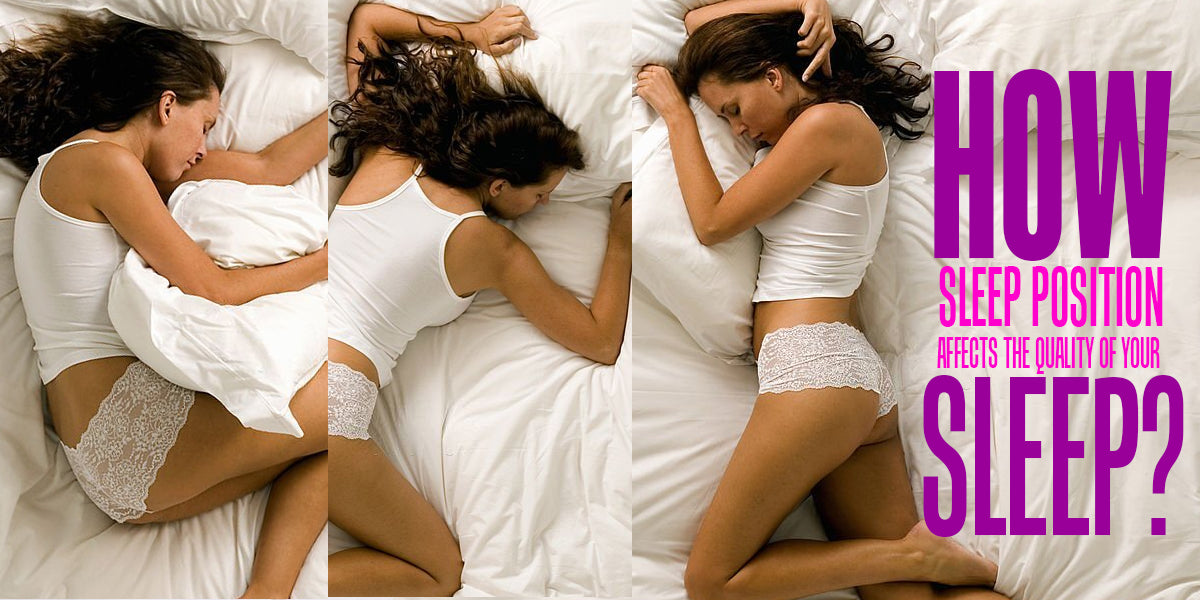Everyone has a preferred way of sleeping. But did you know that the quality of our sleep may be impacted by how we position our bodies and what mattress we use? And since it's a habit, we might not even think twice about how we sleep.
However, Oliver smith believes, it could be time to change your sleeping position if you're feeling more sluggish than expected or your body is sore when you get up in the morning.
Because the quality of your sleep is just as crucial to your health as the number of hours you receive each night, and if your body and mind aren't getting the rest they require, your general health may suffer.
Body Positions That Can Cause Sleep Distress
You probably fall into your preferred posture when you cuddle up under the blankets at night without giving it any thought. Could one sleeping posture be healthier than another, though? Let's find out.
Snoring, sleep apnea symptoms, neck and back discomfort, and other health issues may be influenced by whether you sleep on your stomach, back, or side. Learn which sleeping position is best for your health and which affects the quality of your sleep.
Sleeping On your Stomach
Although not unusual, sleeping with their face down is not something that many people do—adults who sleep on their stomachs or pronely make up around 7% of the population. Although sleeping on your stomach is generally not a good idea, it could help reduce snoring.
Maintaining a neutral spine might be challenging when your head is elevated on the cushion. Your spine overarches because the center of your body, which is the heaviest, is so rich. The neck and back are stressed when you sleep on your stomach.
It may cause pain and nerve problems over time. In the extremities, you could experience numbness or tingling.
Sleeping in a Fetal Position
Always remember that fetal posture is not advised. Even though the body is positioned on its side, the spine's severe curvature can pressure the neck and back.
Additionally, being firmly curled when sleeping might reduce the area available for the diaphragm and hinder breathing.
Sleeping on the back
The spine can remain in a more natural posture while you sleep on your back on the bed. The second most popular sleeping position is supine. Some neck, shoulder, and back discomfort caused by other postures are avoided. It might also be beneficial to lessen issues related to acid reflux by elevating the head with a pillow.
However, snoring and obstructive sleep apnea is much worse with this posture. This is because gravity will drag the tongue and other soft tissues in the throat into the airway as they loosen up. If you have been diagnosed with any sleep condition, you should discuss the best way to change your sleeping patterns with your doctor.
Try switching positions if you want to sleep on your back but find that it causes lower back pain. The body soreness and stress on the lower back will be reduced. Use a soft pillow or cervical cushion for neck support; for knee support, use a medium-sized pad or big neck roll.
Sleeping Lateral
Medical professionals and sleep experts advise the lateral position because of its many advantages. While lying on your side, the spine can stay long and somewhat neutral with the correct mattress. It lessens unnecessary shoulder, back, and neck pain. For a good reason, most individuals find this sleeping posture the most pleasant.
Some folks may have low back discomfort from this position. Additionally, if you already have it, it can aggravate it. It can also exacerbate issues with snoring and sleep apnea. Consult your doctor about possible solutions if you suffer from one of these problems and cannot find alternative means of consolation.
Conclusion
Oliver Smith advise letting comfort be your guide if you don't have to worry about any of the sleeping above positions. However, choosing a pleasant sleep posture isn't the only factor to consider.
Our advice is to replace worn-out cushions and mattresses. Aim for something supportive, but choosing between soft and firm is a question of preference. A firm pillow to support the neck may be beneficial if you suffer from neck or shoulder aches. Lower back discomfort can be reduced by using a bolster or cushion to support the legs.
Not to forget that numerous concerns can be resolved with a mattress and a supportive bed that fits your body type and sleeping preferences. It should be soft enough to conform to your body's contour and hard enough to support your back and sleeping position. It's not always simple to understand this.




Leave a comment
This site is protected by hCaptcha and the hCaptcha Privacy Policy and Terms of Service apply.